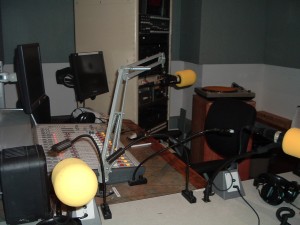There’s been some chatter this week about whether or not the youth of today are listening to radio.
The standard cliche is that youth have abandoned radio and Monday’s Boston Globe article “Young Listeners Tune Out Radio in Search of New Music” repeats that refrain, quoting teens and folks in their 20s who report that they listen to music mainly online and on iPods using services like Last.fm and Pandora to discover new music.
The article states:
“While its viability hasn’t yet reached endangered species status, music radio does face many of the same challenges other mass media – including newspapers, magazines, and network television – are up against. New technologies and delivery options, more choices tailored to individual consumers, fragmented audiences that can find music they enjoy while bypassing glib-talking DJs and annoying commercials – all are factors driving programmers and station owners to retool themselves for the digital media age.”
In response to this article, Radio Ink shares Southern California Broadcasters Association President Mary Beth Garber’s reaction. Here’s a tidbit of that:
“Granted, younger people have iPods/MP3s (about 7 out of 10, although the number goes down as the age goes up over 17, according to Edison Research), most use the Internet, and many have cell phones with texting capabilities. But radio still outreaches all of that.
‘Real music,’ to tens of millions of young people, is on the radio. As long as its content remains relevant, radio is likely to remain the leading choice of audio entertainment for young people. It’s free and it’s remarkably easy to use. It airs tens of thousands of new songs and new artists every year. With the right app, it’s even available on your iPod or MP3 player and it doesn’t require hours to download and program songs in order to listen to it.”
Other radio defenders chimed in by commenting about non-commercial radio’s ongoing relevance (which I discuss on Spinning Indie), particularly in Boston which is blessed with numerous college radio stations.
Meanwhile, there’s another trend going on that I’d like to point out. In the same week that the Globe was writing about young people turning away from radio, I ran across several articles talking about teen radio camps and new radio stations cropping up that are staffed by teen DJs.
A Chicago magazine published by high school students called True Star is planning to branch out by creating accompanying web programming and a radio show this fall, college radio station WGMU is running a radio summer camp for teens this week, a summer camp in Canada has teens creating podcasts with plans to launch a community Internet radio station, and teens at a school in the U.K. will have their own online station in September. One of the 14-year-olds involved with the new U.K. station is quoted as saying, “We’ll provide up-to-date music which will appeal to many young listeners.”
Although radio’s delivery method is evolving, it’s nice to see that there is still youthful energy surrounding the idea of radio, even as a way to broadcast new music.



